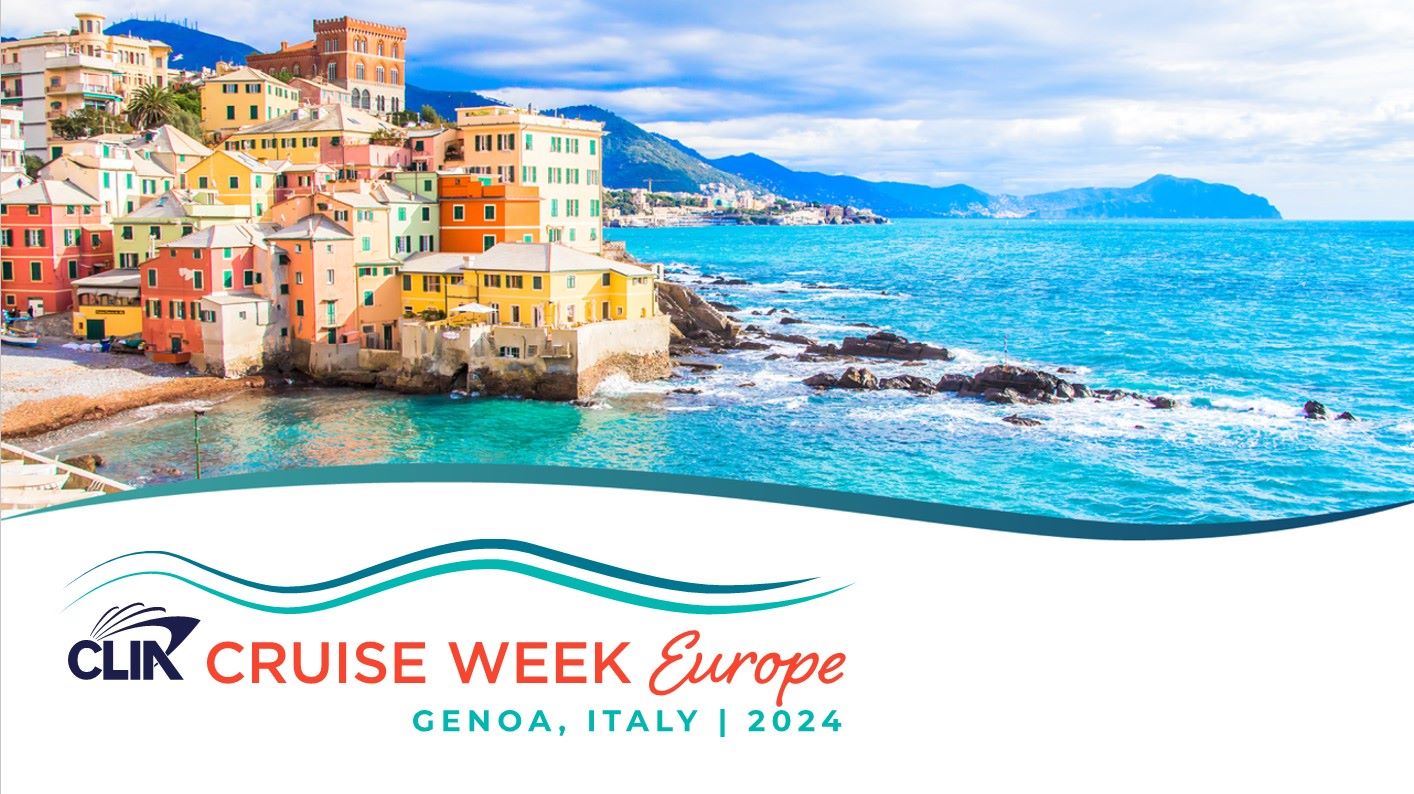Global cruise leaders meet in Europe as the industry calls for action to increase production and supply of sustainable marine fuels
· Cruise Lines International Association (CLIA) issued the call for action at its European Summit in Genoa
· Based on 2023 consumption, CLIA estimates that 44,000 tonnes of sustainable marine fuels will be needed in Europe by 2025 to be in line with the EU decarbonization 2030 goals
13 March 2024 (GENOA) — As global cruise leaders met in Genoa, Italy, today, the industry issued a call to governments to act to increase production of sustainable marine fuels. Cruise Lines International Association (CLIA), the leading voice of the global cruise industry, estimates that 44,000 tonnes of sustainable marine fuels will be needed in Europe by 2025 to be in line with the 2030 EU decarbonization goals.
At its European Summit in Genoa, CLIA revealed 55 cruise ships are on order representing an investment of €33.9 billion for the next five years. Cruise ships today, and those coming online, are among the most advanced and energy-efficient ships in history, as cruise lines continue to innovate to achieve a vision of net zero emissions by 2050.
While investments in ship technology continue, the availability of sustainable marine fuels at scale is the missing piece in the puzzle. CLIA is calling on governments to help accelerate the transition by setting more ambitious production targets, particularly for synthetic and biofuels.
Jason Liberty, global Chair, CLIA said, “The cruise industry is making enormous investments to lay the foundation for a future of low-to-zero carbon fuels. Collaboration with our industry’s global leaders and changemakers is critical to ensure that sustainable marine fuels are available, affordable, and scalable. We look forward to strengthening our partnerships with ports, governments, and communities to fully realize the green transition of the maritime sector.”
CLIA is also calling for governments to reinvest the revenues received from maritime as part of the EU Emissions Trading Scheme to fund the necessary infrastructure and support deployment of renewable energy solutions at an accessible price.
CLIA is embarking on a research study to combine fuel infrastructure, technology, and sailing routes to identify the local investment needed for the industry to decarbonize by 2050.
In cooperation with fuel producers and engine manufacturers, the cruise industry is pursuing a variety of sustainable energy sources. These sources include internationally certified sustainable biofuels, and synthetic e-fuels such as e-methane and e-methanol. Other sources being explored as part of hybrid solutions include electric batteries, bio-LNG, e-LNG, methanol, or hydrogen fuel cells.
Based on 2023 annual consumption of 2.2m tonnes of fuel within the cruise sector (MRV data –Motinoring, Reporting, and Verification of carbon dioxide -CO2-emissions from ships). The quota is based on the EU Renewable Energy Directive (RED) mandate.
The lead sponsors for Cruise Week Europe 2024 are RINA and Fincantieri (Founding Leaders) and Lloyd’s Register, Welbilt and Luxury & Yacht Projects (Premier Contributors). The European Summit is supported by Risposte Turismo. For the full list of sponsors, making it possible for this unique event to take place, please click here: https://www.cliacruiseweek.com/sponsors/
CLIA is the world’s largest cruise industry trade association, providing a unified voice for the industry as the leading authority of the global cruise community, with a membership comprising 55 cruise lines, including 294 ocean going cruise ships, representing 95% of the cruise sector. On behalf of its members, affiliates and partners, the organization supports policies and practices that foster a secure, healthy, and sustainable cruise ship environment, promoting positive travel experiences for millions of travelers who cruise annually. This year, CLIA forecasts that annual the number of passengers will reach 35 million passengers. The CLIA community includes the world’s most prestigious ocean, river, and specialty cruise lines; a highly trained and certified travel agent community; and a widespread network of stakeholders, including ports & destinations, ship development, suppliers, and business services.For further information, please visit cruising.org or europe.cruising.org

